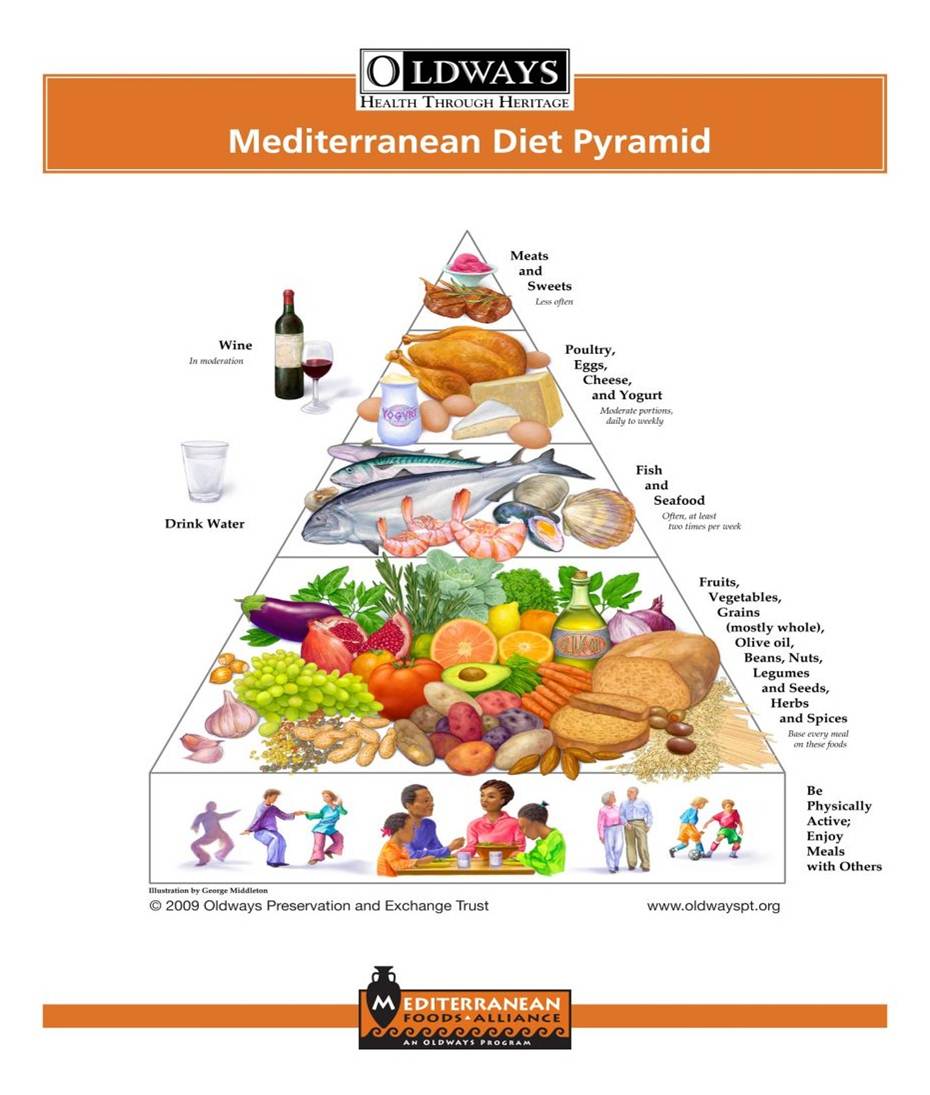Published on September 07, 2017
International Mediterranean Diet Month

The Mediterranean Diet received its name from the population of people who lived around the Mediterranean Sea. In a study, these people were found to have a lower risk of heart disease than others living in surrounding regions.
The fundamentals of this diet highlight food groups such as vegetables, fruits, vegetable proteins, whole grains, and fats. The Mediterranean’s ate a diet great in non-starchy vegetables such as asparagus, carrots, broccoli, cauliflower, celery, mushrooms, cucumbers and
This diet highlights “healthy fats”. You may be wondering what a healthy fat is. A healthy fat is one that contains monounsaturated or polyunsaturated fats. They contain little to no saturated fats, so they will not increase your “bad”
The last two groups I will discuss are grains and dairy. Choose whole grains, focusing on 4-6 servings a day. Examples of a grain serving include 1 slice of whole wheat bread, 6-inch whole wheat pita, ½ cup of potatoes, corn or peas, ½ cup of cooked whole grain cereal, ½ cup whole wheat pasta.
When you are choosing dairy foods, choose skim or low-fat options. Examples of
Meet Our Dietitian
 Lauren Foreman is a Registered Dietitian and an Owensboro native who attended Daviess County High School. She holds a bachelor’s in Nutrition from the University of Alabama. She has always had a passion for community wellness and bettering the health of our population. She is looking forward to providing nutrition information and having a hand in what Owensboro Health is accomplishing in our communities.
Lauren Foreman is a Registered Dietitian and an Owensboro native who attended Daviess County High School. She holds a bachelor’s in Nutrition from the University of Alabama. She has always had a passion for community wellness and bettering the health of our population. She is looking forward to providing nutrition information and having a hand in what Owensboro Health is accomplishing in our communities.
About Owensboro Health
Owensboro Health is a nonprofit health system with a mission to heal the sick and to improve the health of the communities it serves in Kentucky and Indiana. The system includes Owensboro Health Regional Hospital, nationally recognized for design, architecture and engineering; Owensboro Health Muhlenberg Community Hospital; Owensboro Health Twin Lakes Medical Center; the Owensboro Health Medical Group comprised of over 350 providers at more than 30 locations; four outpatient Healthplex facilities, a certified medical fitness facility, the Healthpark; a weight management program, and the Mitchell Memorial Cancer Center.
On average each year, we have more than 19,000 inpatient admissions, deliver 2,000 babies and provide the region’s only Level III NICU. Owensboro Health physicians perform nearly 33,000 surgical procedures, including nearly 150 open-heart surgeries. Our physicians and staff have 90,000 Emergency Department visits and more than 1.25 million outpatient visits annually. Visit our home page for more information.